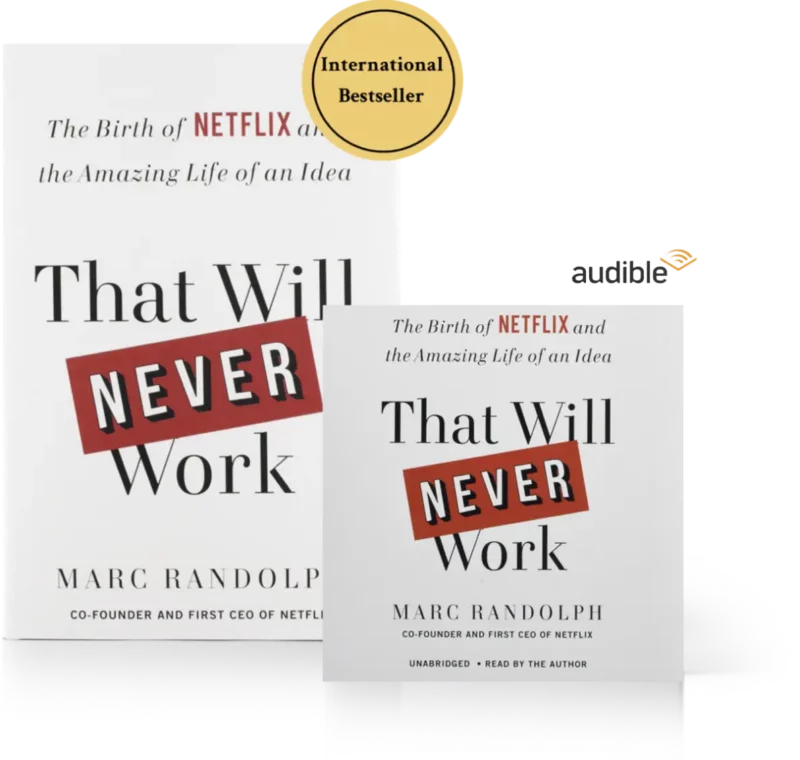The Bigger They Come, the Harder They Fall
If you’re not willing to disrupt yourself, I promise someone else would be happy to do it for you.

I sold a house a few days ago. It was just a small rental property in upstate New York, so not a big deal as real estate goes. But it was certainly an eye-opening experience.
The last time I sold a property in New York was in 2005, and back then the process was antiquated. Each side needed its own lawyer. There was a custom contract and a stack of documents nearly six inches thick. All the financial transactions were done with paper checks. I paid a 6% commission.
You know what has changed in the intervening 18 years? Nothing!
We still did everything on paper. Each side still had to hire a lawyer. I still had to pay a 6% commission. I got paid with a cashier’s check which had to be overnighted to me. I had to wait in line at the bank to deposit it, and then in the ultimate indignity, was told there would be an 11-day wait for the check to clear and the funds to be available.
During a Q&A I did last week, someone asked what type of company I would start if I was just starting out. I told them I would look for a legacy business that regularly disappointed their customers and try to figure out a better way to deliver that service (you know…the way Reed Hastings and I did when we took on Blockbuster). But little did I know that just a couple of days later I’d be presented with such a tempting target.
Let’s start with the bank. What reasonable explanation could there be for putting an 11-day hold on a “cashier’s check” from a major bank?
Maybe I don’t understand what a cashier’s check is. I thought that was considered as good as cash. But regardless of the kind of check, within hours of me depositing it, my bank grabbed that money from the other bank and both sides knew then and there if the check was good. Could it really take 11 days to figure that out?
The bank would probably say this was to protect me. They would explain that a cashier’s check can have a stop payment placed on it by the check writer, or that there might be other types of fraud. But why does this take 11 days to uncover?
And that’s where regulators come in. The Federal Reserve Board permits banks to delay, for a ‘reasonable period of time,’ the availability of funds. And ‘reasonable’ period of time is generally defined as seven “business days” for local checks. Add in two weekends and a holiday and you’ve got your 11 days.
Of course, a bank could shorten that period, which leads to my cynicism. Does it take them 11 days, or is that just an excuse? Are they simply taking the money from the other party’s account on day 1, but waiting 10 more days to give it to me, taking a long float on a few hundred thousand dollars? Is this truly a practice meant to benefit the customer?
Instead, I’m guessing that this is just a matter of incentive. There are probably seven people at the bank whose compensation is tied to customer satisfaction, but probably 70,000 whose compensation is tied to increasing revenue. And that explains a lot.
Whenever I bump into some frustration like this, I ask myself, “is there a good reason it needs to be done this way?” Simply asking that question has been the genesis of every one of my startups—and the genesis of almost every other world-changing company you can think of. And it’s exactly why so many startups are so excited about taking on the big banks.
But it’s a dynamic that’s at work everywhere and it’s astounding to me that it exists in as many places as it does.
For example, my wife just ordered something from Land’s End and both of us were amazed to hear that they planned to ship it in eight business days. Not deliver it in five days. No, they were going to take eight days to hand it off to the shipper. God knows when it will arrive. What could they be thinking? They must know we’ve all become habituated by Amazon Prime to be disappointed when something we order can’t be delivered the following day.
And I’ve purposefully spared you most of the real estate frustrations I encountered.
-Why didn’t the title company do the financial distributions electronically, so I had my money immediately?
-Or why didn’t the title company guarantee the payment, so I didn’t need to wait 11 days – or worse, risk someone putting a stop payment on the check after I had already delivered my house to them?
-Why did they charge me a flat 6% commission regardless of the size of the sale or how much effort it took to sell it? And why was the bidding process so opaque?
-Why was I paying a commission to the buyer’s agent? Wasn’t that incenting them to make the buyer pay more? (Not that I’m complaining about this one).
These are clearly not practices that have been optimized for the customer. Or, if that was once their intention, it’s clear that technology and business practices have long since disguised and negated it.
That’s what makes banking and real estate (and health care, insurance, Big Pharma, etc.) such ripe targets. Their bad business practices are “protected” by laws, regulations, and “best practices,” so they don’t feel pressure to change. Regulatory bodies have made it very hard to start a bank, so banks don’t need to compete that hard to earn the loyalty of their customers. Certainly not in the same way that 95% of all other businesses do.
But that just means that when these businesses fall, they fall hard. And if you listen carefully, you can hear the splintering of wood that suggests the real estate cartel—long protected by the monopolistic practices of the MLS and the Association of Realtors—is about to topple.
Disrupting a huge category might seem like an insurmountable task, given how heavily these industries are regulated, and how steep the cost of entry continues to be. But it’s happened before, many, many times. The hotel industry, the taxi industry, and yes, the video-rental business: all of these must have seemed completely buttoned up before the right challengers came along. Heck, how about rockets? Did anyone think 20 years ago that startups would be taking business away from NASA?
There are a couple of lessons to take from my experiences.
First, no matter how locked-in your business seems, it’s never truly secure. No matter how protected you are by laws, regulations, or simply habit . . . you can never lose sight of the importance of staying focused on what the customer wants. Over time, that trumps everything. And if you’re unwilling to disrupt yourself, I guarantee someone is working hard to disrupt your business for you.
But it also means that this is a great time to be an entrepreneur. Because if you keep your eyes open for frustration—and can identify the ways in which established companies aren’t meeting their customers’ needs—that’s where the opportunity to build a new billion-dollar franchise comes from.
It’s ours for the taking.
To find other things I’ve written and much more, check out MarcRandolph.com
RECOMMENDED FOR YOU
Why We Kept the Original Netflix DVDs in a Safe.
Podcast Episode 72
Is it a Culture Problem or a Hiring Problem?
October 25, 2022 • 38 min
